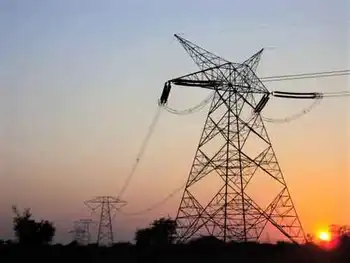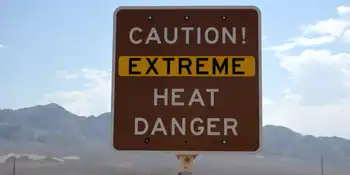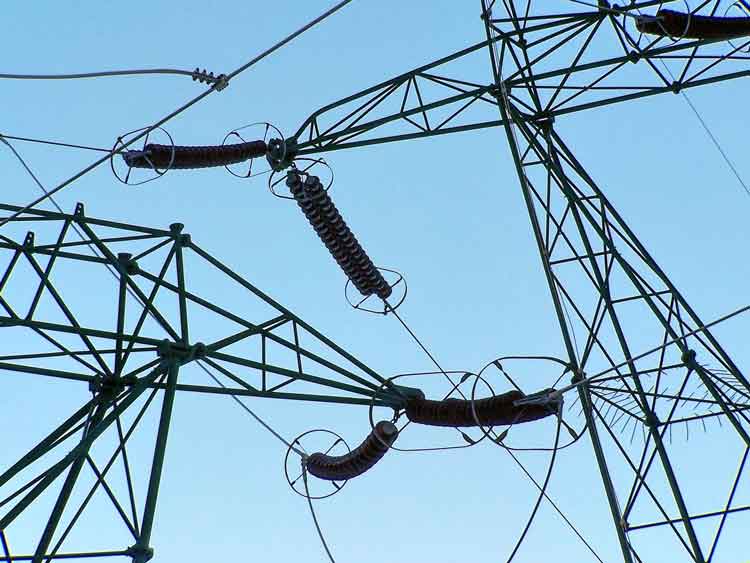WASHINGTON — - Congress Moves Toward Mandating Rules for Electricity
WASHINGTON — Spurred by the Aug. 14 blackout, Congress is approaching action on an energy bill that would make a major change in the electric system, creating government rules for companies that generate, transmit or distribute power.
But if the leadership gets its way, Congress will be voting before anyone can say whether violations of the existing rules, which are voluntary and set by an industry group, had anything to do with the power failure that left tens of millions of people in the dark from Michigan and Ontario to Connecticut. For its part, the industry is heading in a different direction and changing its procedures.
The Energy Department and its Canadian counterpart, the Ministry of Natural Resources, have promised to issue a report on the blackout's causes in the next two to three weeks, and the heads of both agencies are refusing to discuss their findings now. But two people involved in the work of the American-Canadian task force investigating the blackout said they did not believe it had been shown that any participant in the electric system broke any rules, implying that the problem was not the voluntary nature of the rules, but the rules themselves.
For now, though, Congress seems likely to take the blackout as a cue to pass an energy bill with mandatory standards. Republican leaders hope to unveil a measure long before the investigation is completed. And the bill is likely to get a warm reception from the administration.
"The operators, the people who use this transmission grid, have to be held to the highest standards of behavior, and it can't just be a voluntary kind of commitment," Energy Secretary Spencer Abraham said at a news conference in Ottawa on Oct. 17. "It has to be one in which people understand there is enforcement."
Herb Dhaliwal, the Canadian natural resources minister, said Canada would consider mandatory standards as well.
But a few moments later Mr. Abraham acknowledged that one purpose of the report was to "indicate if standards that currently exist have been followed, or if the problems were exclusively of a sort that current standards didn't address."
As Congress forges ahead to make the rules mandatory, the organization that has provided much of the expertise for the investigation, the North American Electric Reliability Council, a Canadian-American group that sets voluntary standards for the electricity industry, has headed in a different direction. The group, known as Nerc, sent a letter to its members on Oct. 15 calling for changes to improve reliability, but these were changes in procedure, not rules.
Among them were quicker communication of voltage problems and plans for companies that generate, transmit or distribute power to manage voltage — the electrical equivalent of water pressure — in the transmission grid to be able to handle unforeseen fluctuations.
Nerc also told members to "establish an automated method to alert power system operators and technical support personnel" when power system status has significantly changed, or when alarms are not being received or sounded. On Aug. 14, a computer problem at FirstEnergy in Ohio prevented operators there from seeing some alarms that could have alerted them to developing problems.
The letter also called on electric companies to ensure that operators know not only that they have the authority to intentionally black out some customers in emergencies, but also that they are "expected to exercise that authority to prevent cascading." That was a major lesson of the 1965 blackout, experts say, and blacking out one area to prevent the problem from creating a more extended collapse was one reason that the 1977 blackout was more limited, mostly to downstate New York.
Proponents of mandatory standards are not alone in using the blackout as justification.
Some people seeking to influence energy policy have suggested that the blackout shows that nuclear plants can make the system less stable, because the plants tend to shut themselves down in case of trouble and take longer to restart than other kinds of generating stations. Others have suggested that adding nuclear plants would make the system more stable, because it would allow electric generation closer to the point of consumption.
Among others enlisting the blackout to their cause are advocates of building transmission lines and giving the federal government power to force states to accept them; advocates of "distributed energy" plants that could fit into small spaces near load centers; advocates of loosening regulations to make power plants easier to build; and advocates of re-regulating the system.
One member of the task force, David J. O'Brien, who is the chief consumer advocate for electric customers in Vermont, said, "Anyone with a cause in this matter is already pointing to the blackout as evidence of their theory."
Related News

Energy groups warn Trump and Perry are rushing major change to electricity pricing
WASHINGTON - A coalition of 11 industry groups is pushing back on Energy Secretary Rick Perry's efforts to quickly implement a major change to the way electric power is priced in the United States.
The Energy Department on Friday proposed a rule that stands to bolster coal and nuclear power plants by forcing the regional markets that set electricity prices to compensate them for the reliability they provide. Perry asked the Federal Energy Regulatory Commission to consider and finalize the rule within 60 days, including a 45-day period during which stakeholders can issue comments.
On Monday, groups representing petroleum, natural gas, electric power and…




